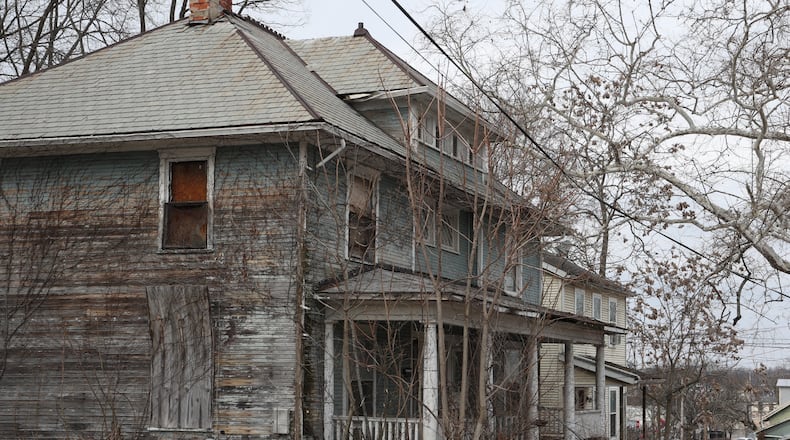The city would no longer have to rely strictly on fines as an effective code enforcement tool and can even prevent demolition of properties due to prolonged neglect.
The program will allow the process to go to the Clark County Common Pleas Court and if property owners do not deal with cited repairs, a receiver can be appointed to fix up the exterior of the property.
The owner of the property would then either pay the appointed receiver for the repairs made or the receiver would be able to sell that property, said Stephen Thompson, the community development deputy director for the City of Springfield.
However, that option would be utilized if citations are not dealt with by the original property owner and fines continue to accumulate. The property owner would also be able to state their case In front of a judge as to why repairs have not been made as well as if assistance is needed.
It will ultimately be up to the judge as who the receiver will be. However, the judge will have several options to chose from.
The city is still coming up with the criteria in how to evaluate who would be eligible as a receiver who could be recommended.
In the past, continual neglect of homes would lead to demolition and the city had few options to prevent that process, said Bryan Heck, the city manager for the City of Springfield.
Heck said that the program can help revitalization efforts in the city as a whole and correlates with a focus on legacy neighborhoods that have older properties as well as those that are vacant and have become blighted. He noted that the issue of blighted properties in the area is a large one and can post public safety issues.
“This program will allow another opportunity for us to pursue getting vacant structures back in to productive use within the community,” he said.
Due to longtime neglect of those homes and the extensive damage to those homes as a result, the city demolishes on average 75 to 100 homes per year, costing on average $10,000 per demolition, said Thompson, noting that putting a receivership type program in place has the potential to save the city money.
The program may also be able to save old homes that have a strong supporting structure, but extensive exterior damage. The rehabilitation of those properties can aid in city efforts to create more housing in the area, Heck added.
“We are not going to demolish our way out of the housing issues that we have in our community. We need to be able to put these properties back into productive use. Receivership program is one more tool that we have in our toolbox to be able to do that,” he said.
The idea of having this type of program in the city came from a list of recommendations made by the Greater Ohio Policy Center, which conducted a housing market analysis looking at Springfield.
Released in 2019, the Comprehensive Housing Market Analysis made six major recommendations, took nine months to complete, and cost the city and 20 other organizations $50,000.
Since then, Heck said they have been gradually implementing those recommendations and started working on creating the Nuisance Property Program last year.
The analysis also found that Springfield had an aging housing stock with 50% of its units being built before 1949.
The goal is that the new program will lead to the repurposing of some blighted property in the city into functional housing stock, accompanying larger housing plans that includes attracting a variety of different housing options, including new developments.
The receivership program is slated to start tackling its first cases in March and Springfield city commissioners voted in support of its enactment during their public meeting on Tuesday.
The program will be managed and operated within the existing capacity of the city’s Community Development Department as well as its Legal Department, said Heck.
About the Author

